C# - 高级编程
结构Struct
struct 结构体
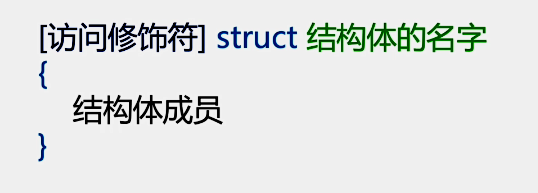
实例
using System;
namespace HelloWord
{
struct Game
{
public string name;
public string developer;
public DateTime releaseDate;
public Game(string name, string developer, DateTime releaseDate)
{
this.name = name;
this.developer = developer;
this.releaseDate = releaseDate;
}
public void GetInfo()
{
Console.WriteLine("游戏名称", name);
Console.WriteLine("开发", developer);
Console.WriteLine("上架日期", releaseDate);
}
}
class Program
{
static void Main(string[] args)
{
Game game;
game.name = "pokemon";
game.developer = "LI";
game.releaseDate = DateTime.Today;
game.GetInfo();
Console.Read();
}
}
}
结构体的使用场景
- 电脑的内存分为堆内存和栈内存。
- 堆内存空间远大于栈内存,但是栈内存执行效率却高于堆内存。
- 引用类型保存在堆内存中,而值类型则保存在栈内存。
- class对象是引用类型,保存在堆内存中,执行效率比较低。
- struct是值类型,保存在栈内存中,运行效率高。
class的使用场景
- 抽象的概念、或者需要多个层级来表现对象关系。
- 适用于结构复杂的数据。
结构体的特点
- 可带有方法、字段、索引、属性、运算符方法和事件。
- 结构不能定义无参的默认构造方法。
- 结构可实现接口,但它不能继承,也不能被继承。
- 实例化可以使用
new(),但也可以不用new()
枚举Enum
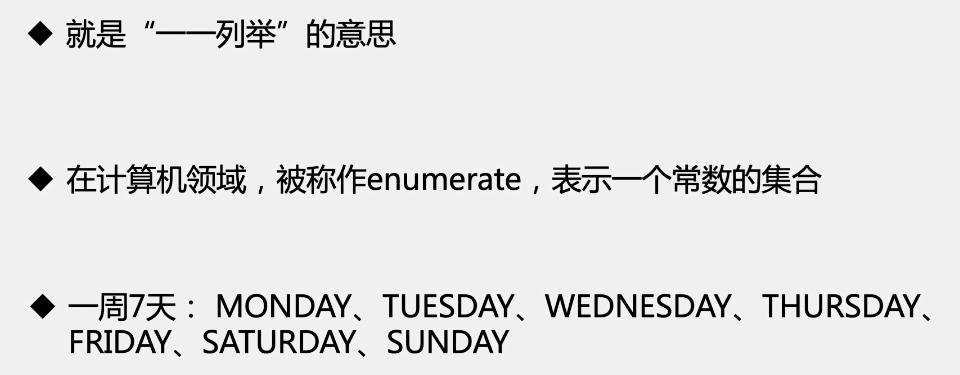
实例
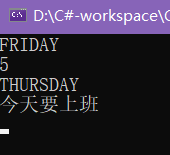
using System;
namespace HelloWord
{
class Program
{
enum Weekday
{
MONDAY = 1,
TUESDAY,
WEDNESDAY,
THURSDAY,
FRIDAY = 5,
SATURDAY,
SUNDAY
}
static void Main(string[] args)
{
Weekday firday = Weekday.FRIDAY;
Console.WriteLine(firday);
Console.WriteLine((int)firday);
var firday2 = (Weekday)4;
Console.WriteLine(firday2);
Weekday day = Weekday.MONDAY;
switch(day)
{
case Weekday.MONDAY:
case Weekday.TUESDAY:
case Weekday.WEDNESDAY:
case Weekday.THURSDAY:
case Weekday.FRIDAY:
Console.WriteLine("今天要上班");
break;
case Weekday.SUNDAY:
case Weekday.SATURDAY:
Console.WriteLine("家里蹲");
break;
}
Console.Read();
}
}
}
泛型入门
泛型
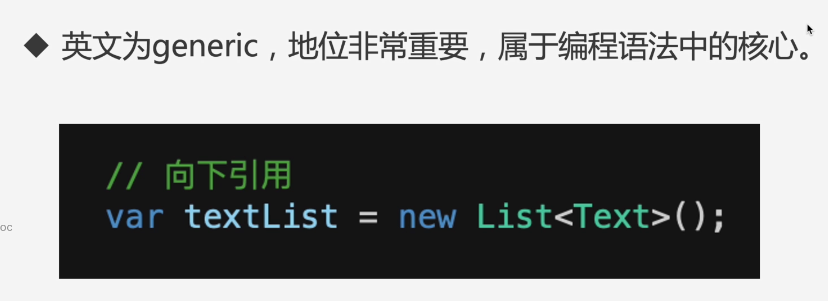
实例
using System;
namespace HelloWord
{
class Program
{
static void Main(string[] args)
{
//var numberlist = new List();
var numberlist = new GenericList<int>();
numberlist.Add(1);
numberlist.Add(2);
//var productList = new ProductList();
var productList = new GenericList<Product>();
productList.Add(new Product()
{
Id = 1,
Price = 100
});
productList.Add(new Product()
{
Id = 2,
Price = 200
});
var dic = new System.Collections.Generic.Dictionary<string, Product>();
dic.Add("123", new Product());
dic.Add("234", new Product());
dic.Add("345", new Product());
Product product;
dic.TryGetValue("123", out product);
Nullable<int> number = new Nullable<int>();
Console.WriteLine(number.HasValue);
var number2 = new Nullable<int>(5);
number2.GetValueOrDefault();
Console.Read();
}
}
}
泛型进阶
Book.cs
namespace HelloWord
{
public class Book : Product
{
public string ISBN { get; set; }
}
}
DiscountCalculator.cs
using System;
namespace HelloWord
{
public class DiscountCalculator<T> where T : Product
{
}
// where T : IComparable
// where T : Product
// where T : struct
// where T : new()
public class Utility<T> where T : IComparable, new()
{
public int FindMax(int a, int b)
{
return a > b ? a : b;
}
public T FindMax(T a, T b)
{
return a.CompareTo(b) > 0 ? a : b;
}
public void DoSomething()
{
var obj = new T();
}
}
}
List.cs
using System;
namespace HelloWord
{
public class List
{
public void Add(int number)
{
throw new NotImplementedException();
}
public int this[int index]
{
get { throw new NotImplementedException(); }
}
}
}
Nullable.cs
namespace HelloWord
{
public class Nullable<T> where T : struct
{
public Nullable() { }
private object _value;
public Nullable(T value)
{
_value = value;
}
public bool HasValue
{
get
{
return _value != null;
}
}
public T GetValueOrDefault()
{
if (HasValue)
{
return (T)_value;
}
return default(T);
}
}
}
Product.cs
namespace HelloWord
{
public class Product
{
public int Id { get; set; }
public decimal Price { get; set; }
}
}
ProductList.cs
using System;
namespace HelloWord
{
public class ProductList
{
public void Add(Product order)
{
throw new NotImplementedException();
}
public Product this[int index]
{
get { throw new NotImplementedException(); }
}
}
public class ObjectList
{
public void Add(object o)
{
throw new NotImplementedException();
}
public object this[int index]
{
get { throw new NotImplementedException(); }
}
}
public class GenericList<T>
{
public void Add(T o)
{
throw new NotImplementedException();
}
public T this[int index]
{
get { throw new NotImplementedException(); }
}
}
public class Dictionary<TKey, TValue>
{
public void Add(TKey key, TValue value)
{
throw new NotImplementedException();
}
public TValue get(TKey key)
{
throw new NotImplementedException();
}
}
}
Program.cs
using System;
namespace HelloWord
{
class Program
{
static void Main(string[] args)
{
//var numberlist = new List();
var numberlist = new GenericList<int>();
numberlist.Add(1);
numberlist.Add(2);
//var productList = new ProductList();
var productList = new GenericList<Product>();
productList.Add(new Product()
{
Id = 1,
Price = 100
});
productList.Add(new Product()
{
Id = 2,
Price = 200
});
var dic = new System.Collections.Generic.Dictionary<string, Product>();
dic.Add("123", new Product());
dic.Add("234", new Product());
dic.Add("345", new Product());
Product product;
dic.TryGetValue("123", out product);
Nullable<int> number = new Nullable<int>();
Console.WriteLine(number.HasValue);
var number2 = new Nullable<int>(5);
number2.GetValueOrDefault();
Console.Read();
}
}
}
空处理Nullable
值类型 vs 引用类型
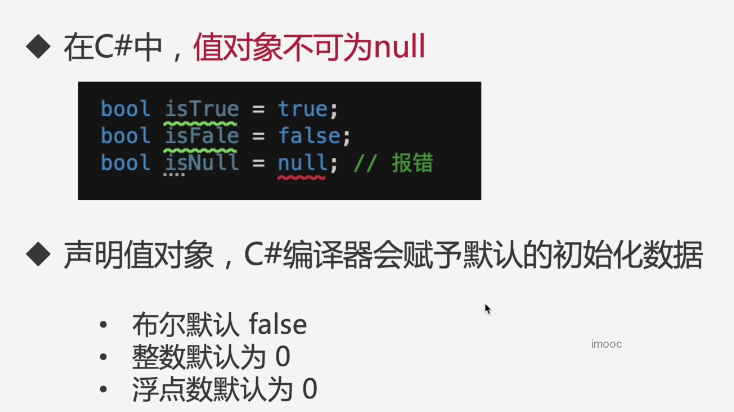
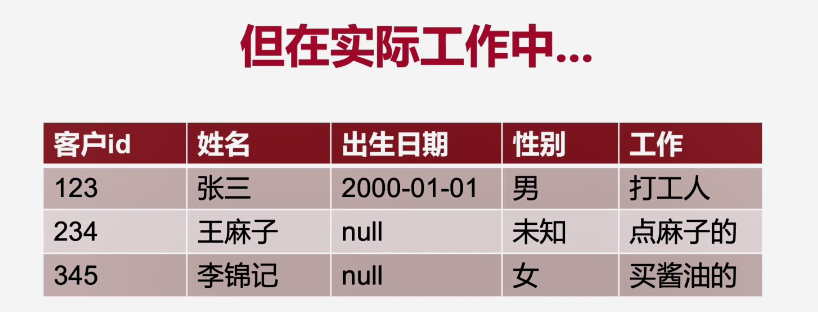
- C#中DateTime却是值类型数据,需要特殊处理才能赋值为null。
实例
using System;
using System.Collections.Generic;
using System.Linq;
using System.Text;
using System.Threading.Tasks;
namespace _36Nullables
{
internal class Program
{
static void Main(string[] args)
{
Nullable<DateTime> date = null;
//这两是一样的
DateTime? date2 = new DateTime(2099,1,21);
DateTime? date3 = date.GetValueOrDefault();
DateTime? date4= date3;
if (date4.HasValue)
{
Console.WriteLine(date3.GetValueOrDefault());
}
else {
Console.WriteLine(DateTime.Today);
}
//这两也是一样的,??合并操作符
var result = date4 ?? DateTime.Today;
Console.WriteLine(result);
/* Console.WriteLine(date.GetValueOrDefault());
Console.WriteLine(date.HasValue);
*//* Console.WriteLine(date.Value);*/
Console.Read();
}
}
}
拓展方法Extesion
- 允许我们向一个已经存在的class中添加拓展代码。
- 不需要修改原class的代码。
- 不需要继承原class。
实例
using System;
using System.Collections;
using System.Collections.Generic;
using System.Linq;
namespace HelloWord
{
class Program
{
static void Main(string[] args)
{
string hello = "Hello World";
Console.WriteLine(hello.ShortTerm(2)); // He
IEnumerable list = new List<int>();
//list.
Console.Read();
}
}
public static class StringExtension
{
public static string ShortTerm(this string str, int num)
{
return str.Substring(0, num);
}
}
//class RichString: String
//{
//}
}
动态类型dynamic
C#属于强语言,同时略偏静态类型
- 强类型语言,因为它不支持类型的自动转化。
- 主要是静态语言,但是因为存在
dynamic这个关键词,所以它也具有动态类型的特点。
实例
using System;
using System.Collections.Generic;
using System.Linq;
using System.Text;
using System.Threading.Tasks;
namespace _38dynamic
{
public class Excel
{
public string Table { get; set; }
public void ShowTable()
{
Console.WriteLine("打印excel表格");
}
}
class Program
{
static void Main(string[] args)
{
//object obj = new Excel();
//var obj = new Excel();
dynamic obj = new Excel();
obj.GetHashCode();
obj.ShowTable();
//var methodInfo = obj.GetType().GetMethod("ShowTable");
//methodInfo.Invoke(obj, null);
obj = "hello world";
Console.Read();
}
}
}
反射与元数据(.NET特性)
反射 Reflection
- 实例化对象,但不使用new ,不知道目标对象类型。
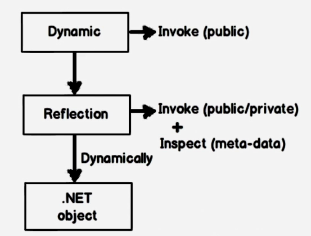
元数据 Metadata
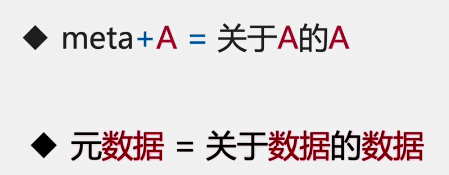
元数据 = 关于数据的数据
- 数据库的数据、文件上的数据。
- 而程序本身,其实也同样是数据。

- 在运行的过程中查看或者使用元数据的过程就叫做反射。
反射的过程
- 元数据报存在程序集(Assembly)中。
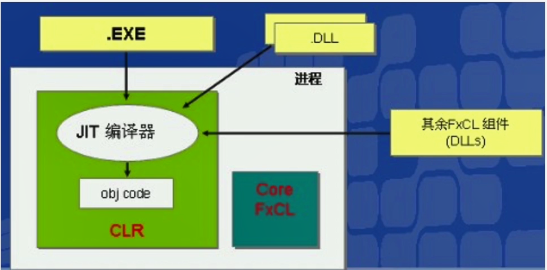
实例
List.cs
using System;
namespace HelloWord
{
public class List
{
public void Add()
{
Console.WriteLine("ddddddd");
}
}
}
Program.cs
using System;
using System.Reflection;
namespace HelloWord
{
class Program
{
static void Main(string[] args)
{
// 定位类 命名空间.类名, 项目名称
const string classLocation = "HelloWord.List, HelloWord";
// 获取 List 类型对象
Type objectType = Type.GetType(classLocation);
// 通过类型实例化
object obj = Activator.CreateInstance(objectType);
// 调用“Add”方法
MethodInfo add = objectType.GetMethod("Add");
add.Invoke(obj, null);
Console.Read();
}
}
}
反射的特点
- 不使用new关键词,我们也同样可以也可以实例化对象。
- 不用new关键词,就意味着我们可以对系统做出进一步的解耦。
非反射 与 反射
非反射
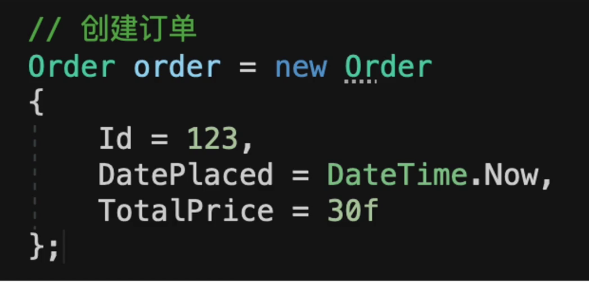
反射

反射与依赖注入
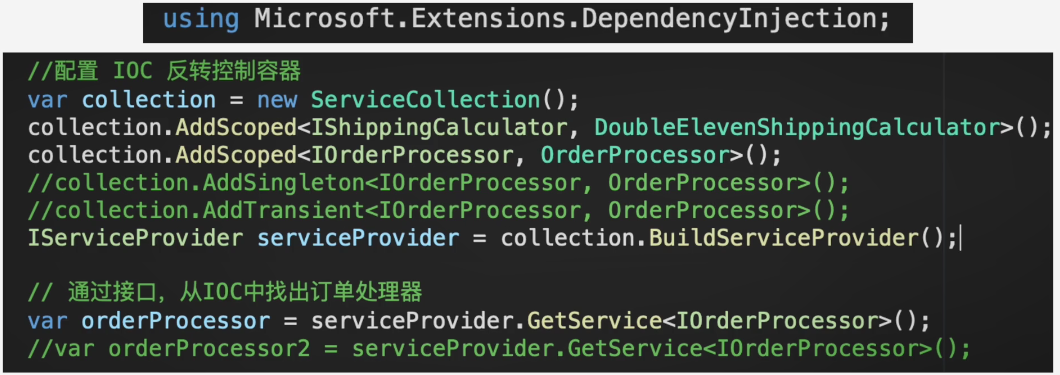
为什么需要反射
- 某些业务逻辑并不是我们在写程序的时候就能确定的。
- 静态环境中预测用户的行为非常困难。
反射的应用场景
- 单元测试、反转控制、依赖注入、泛型。
- 反射机制是.net框架中处于一个比较底层的位置。
- 一般不会直接接触。
反射实战
新建项目和在“解决方案”中新建项目(类库)
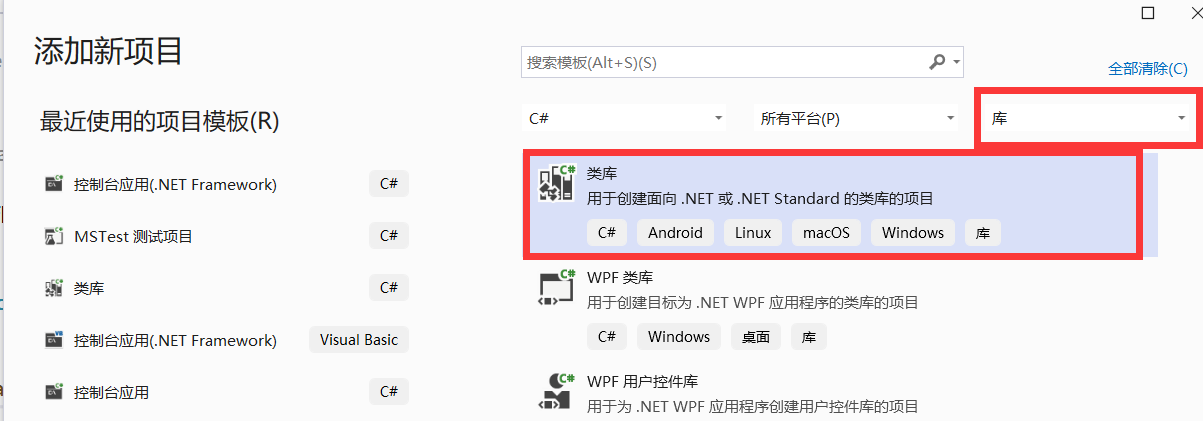
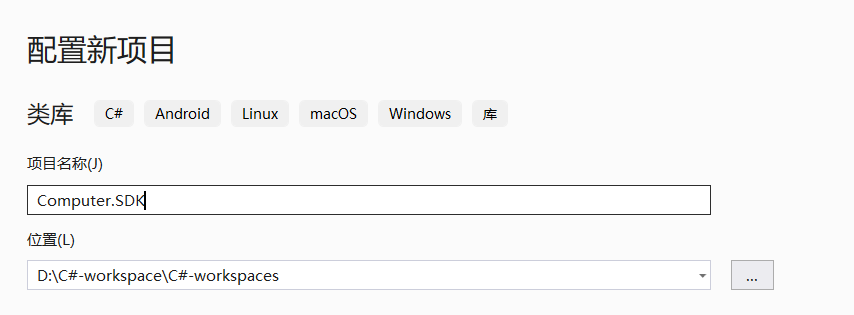
给Computer.SDK类库添加新建项 —— 接口(IUSB.cs)
using System;
namespace Computer.SDK
{
public interface IUSB
{
void GetInfo();
void Read();
void Write();
}
}
创建FlashDisk类库
导入Computer.SDK类库 —— 给FlashDisk类库添加Computer.SDK依赖项

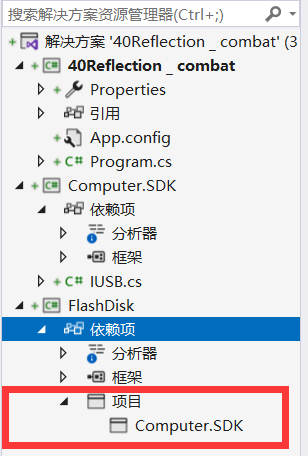
在FlashDisk类库下创建FlashDisk类
using System;
using System.Collections.Generic;
using System.Linq;
using System.Text;
using System.Threading.Tasks;
namespace FlashDisk
{
public class FlashDisk : Computer.SDK.IUSB
{
public void GetInfo()
{
Console.WriteLine("32g");
}
public void Read()
{
Console.WriteLine("读取");
}
public void Write()
{
Console.WriteLine("写入");
}
}
}
创建SSD类库 _ 导入Computer.SDK类库 —— 给SSD类库添加Computer.SDK依赖项

在SSD类库下创建SSD类
using System;
namespace SSD
{
public class SSD : Computer.SDK.IUSB
{
public void GetInfo()
{
Console.WriteLine("1t");
}
public void Read()
{
Console.WriteLine("读取1t");
}
public void Write()
{
Console.WriteLine("写入1t");
}
}
}
在项目文件夹.binDebug中创建USB接口(文件夹)
生成SSD.DLL
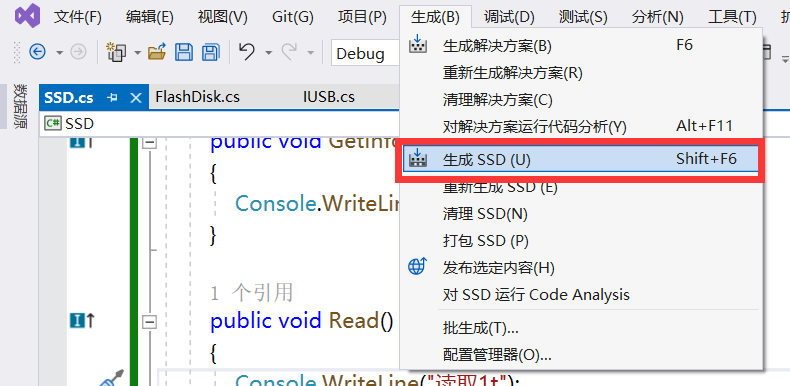
将.SSDbinDebugnet6.0路径下的SSD.DLL复制到USB接口(文件夹)
将.FlashDiskbinDebugnet6.0路径下的FlashDisk.DLL复制到USB接口(文件夹)

Program.cs —— 新建依赖项(Computer.SDK)
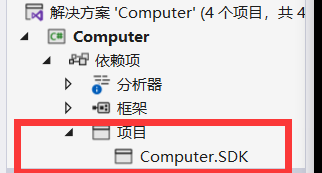
using System;
using System.IO;
using System.Runtime.Loader;
using System.Collections;
using System.Collections.Generic;
using Computer.SDK;
namespace Computer
{
class Program
{
static void Main(string[] args)
{
// 程序路径
var USBInterface = Path.Combine(Environment.CurrentDirectory, "USB");
Console.WriteLine(USBInterface);
// 文件读写操作
var dllFiles = Directory.GetFiles(USBInterface);
// USB 设备列表
var devicesList = new List<IUSB>();
foreach (var dll in dllFiles)
{
var assembly = AssemblyLoadContext.Default.LoadFromAssemblyPath(dll);
var types = assembly.GetTypes();
foreach (var type in types)
{
var interfaceList = type.GetInterfaces();
foreach (var i in interfaceList)
{
if (i.Name == "IUSB")
{
IUSB device = (IUSB)Activator.CreateInstance(type);
devicesList.Add(device);
}
}
}
}
foreach (var devices in devicesList)
{
devices.GetInfo();
devices.Read();
devices.Wirte();
}
Console.Read();
}
}
}
调试

异常处理exceptionhalding
using System;
using System.IO;
namespace HelloWord
{
public class Calculator
{
public int Divde(int numerator, int denomenator)
{
return numerator / denomenator;
}
}
class Program
{
static void Main(string[] args)
{
StreamReader streamReader = null;
try
{
string desktopPath = Environment.GetFolderPath(Environment.SpecialFolder.Desktop);
string fullName = Path.Combine(desktopPath, "123.txt");
streamReader = new StreamReader(fullName);
var connect = streamReader.ReadToEnd();
// 操作文件
// 人为抛出异常
throw new Exception("Oops");
// 关闭文件,回收垃圾
streamReader.Dispose();
}
catch (Exception ex)
{
Console.WriteLine("系统异常");
}
finally
{
if (streamReader != null)
{
streamReader.Dispose();
Console.WriteLine("文件回收");
}
}
Console.Read();
}
}
}


























Comments | NOTHING
该文章已经关闭评论